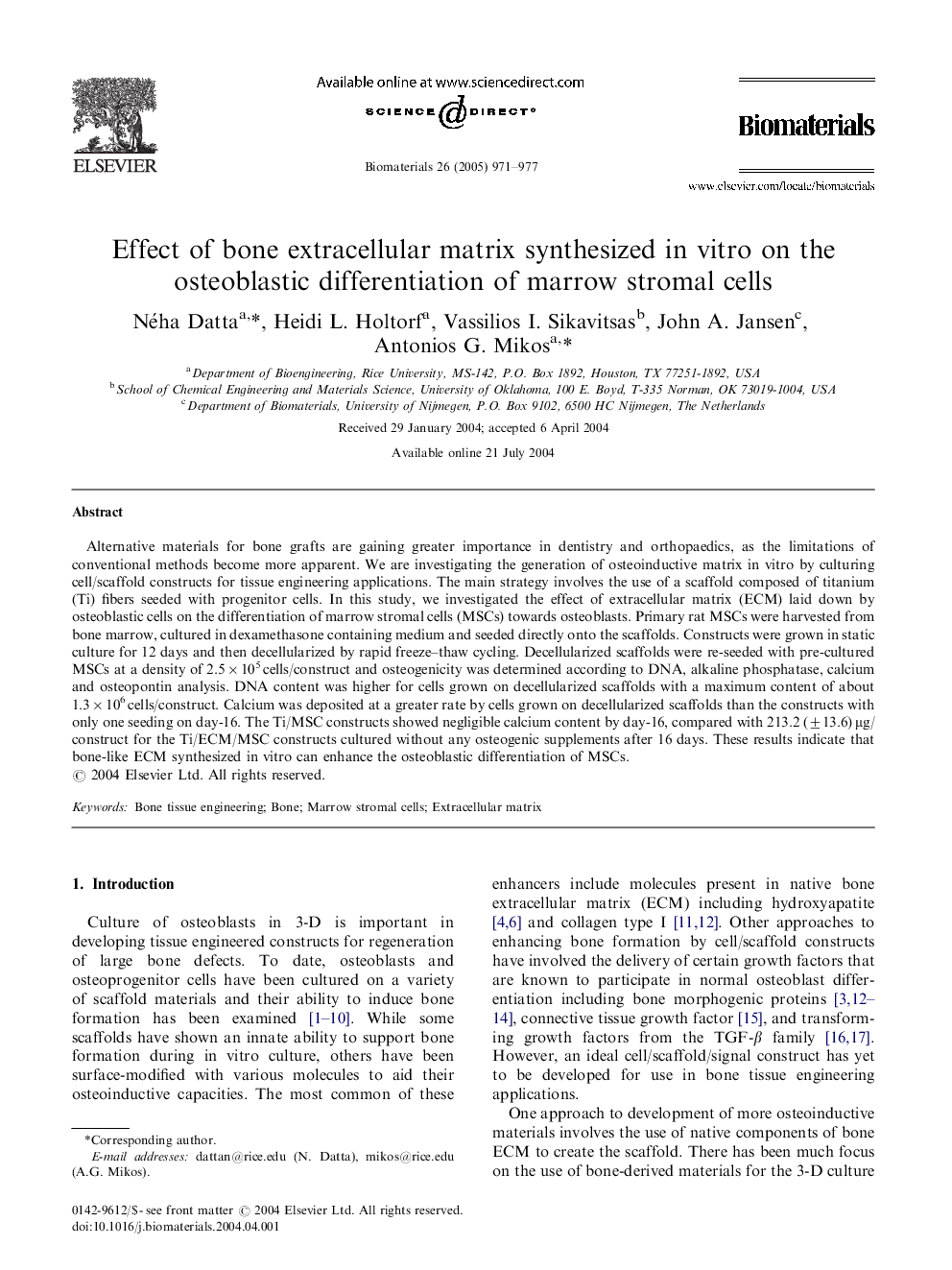| Article ID | Journal | Published Year | Pages | File Type |
|---|---|---|---|---|
| 10230110 | Biomaterials | 2005 | 7 Pages |
Abstract
Alternative materials for bone grafts are gaining greater importance in dentistry and orthopaedics, as the limitations of conventional methods become more apparent. We are investigating the generation of osteoinductive matrix in vitro by culturing cell/scaffold constructs for tissue engineering applications. The main strategy involves the use of a scaffold composed of titanium (Ti) fibers seeded with progenitor cells. In this study, we investigated the effect of extracellular matrix (ECM) laid down by osteoblastic cells on the differentiation of marrow stromal cells (MSCs) towards osteoblasts. Primary rat MSCs were harvested from bone marrow, cultured in dexamethasone containing medium and seeded directly onto the scaffolds. Constructs were grown in static culture for 12 days and then decellularized by rapid freeze-thaw cycling. Decellularized scaffolds were re-seeded with pre-cultured MSCs at a density of 2.5Ã105 cells/construct and osteogenicity was determined according to DNA, alkaline phosphatase, calcium and osteopontin analysis. DNA content was higher for cells grown on decellularized scaffolds with a maximum content of about 1.3Ã106 cells/construct. Calcium was deposited at a greater rate by cells grown on decellularized scaffolds than the constructs with only one seeding on day-16. The Ti/MSC constructs showed negligible calcium content by day-16, compared with 213.2 (±13.6) μg/construct for the Ti/ECM/MSC constructs cultured without any osteogenic supplements after 16 days. These results indicate that bone-like ECM synthesized in vitro can enhance the osteoblastic differentiation of MSCs.
Related Topics
Physical Sciences and Engineering
Chemical Engineering
Bioengineering
Authors
Néha Datta, Heidi L. Holtorf, Vassilios I. Sikavitsas, John A. Jansen, Antonios G. Mikos,
